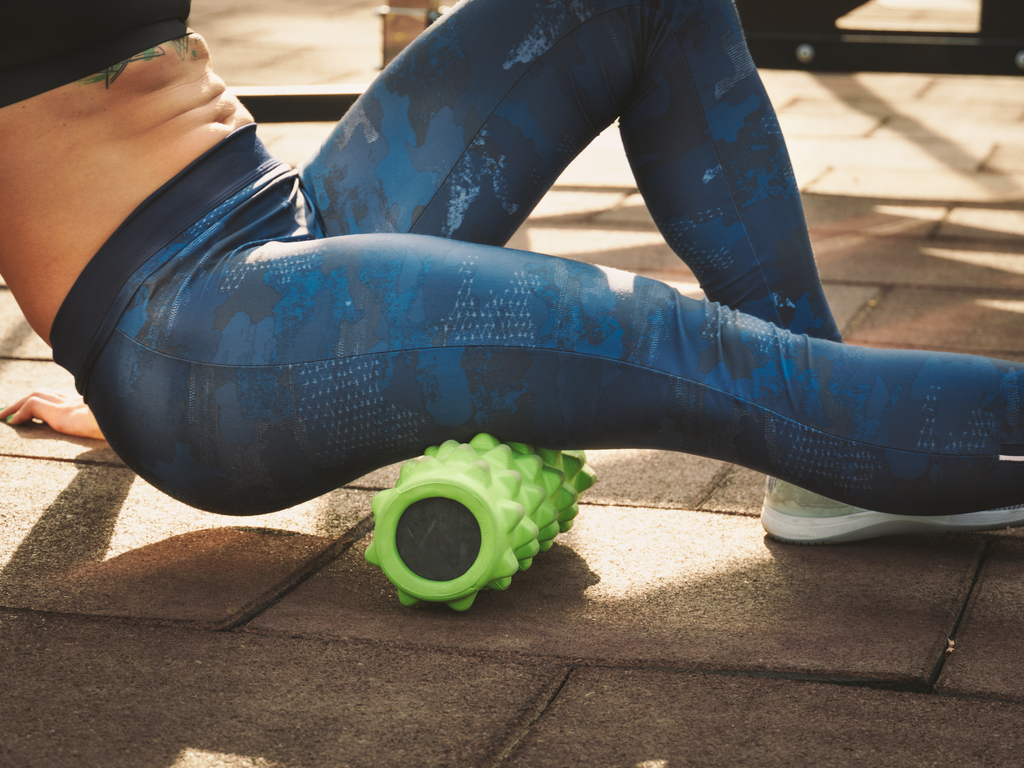Muscle soreness is the sign of a good workout, but that doesn’t make it easy to live with. While there are no instant fixes for post-workout muscle soreness, here are five things you can do during and after a workout to make life easier for yourself.
1. Stay Hydrated
Staying hydrated seems like the most obvious health tip ever, but hydration plays a key role in muscle recovery. The water you drink keeps all fluids pumping through your system, eliminating waste, flushing inflammation, and delivering your muscles the nutrients they need.
The problem is that it’s tricky to know when you’re dehydrated. You’ll reach dehydration before you feel thirsty. Urine color is a good indication of dehydration. The darker your urine is, the more dehydrated you are.
2. Use a Foam Roller After a Workout
Self-myofascial release (SMR) helps to reduce tension in muscles and connective tissues. Most people do SMR with massage sticks or foam rollers. The technique helps push fluids through muscles to improve range of motion and reduce muscle soreness.
We recommend trying a softer foam roller to start with. You can apply more pressure with a firm roller, but the experience is too intense for those not used to it. Lacrosse balls are another handy way to massage yourself and reach hard-to-reach spots like lats and glutes.
3. Eat Within Half an Hour of a Tough Workout
By giving your body the nutrients it needs to grow and repair muscle, you could potentially speed up recovery. Eat between 20 and 40 grams of protein and carbs within half an hour of an intense workout. Your body needs protein for the amino acids used to repair muscle tissue. Carbohydrates help refuel the muscles after an intense workout.
Don’t forget to eat right for the rest of the day as well. Ensure that you get a consistent amount of protein to give your body tissues a steady supply of amino acids. The recommended amount of protein is between 1.4 and 2 grams of protein per kilo of body weight if you’re physically active. For example, if you weighed 150 pounds you’d want to eat between 95 and 136 grams of protein per day.
4. Get Enough Sleep
There are many reasons your body needs sleep. One reason is that sleep is a critical component in exercise recovery. You might not feel like sleeping improves muscle soreness right away, but trust us when we say it does. Non-REM-sleep, for example, increases protein creation. You need protein to repair damaged muscles and get them stronger than before. Aim for at least seven hours of sleep per day.

